Filter by
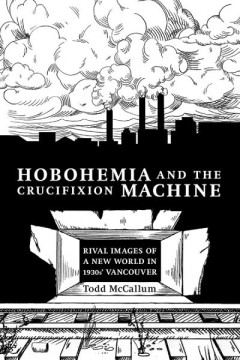
Hobohemia and the Crucifixion Machine Rival Images of a New World in 1930s V…
In the early years of the Great Depression, thousands of unemployed homeless transients settled into Vancouver’s “hobo jungle.” The jungle operated as a distinct community, in which goods were exchanged and shared directly, without benefit of currency. The organization of life was immediate and consensual, conducted in the absence of capital accumulation. But as the transients moved from …
- Edition
- -
- ISBN/ISSN
- 9781926836287.01
- Collation
- -
- Series Title
- -
- Call Number
- 332 pages
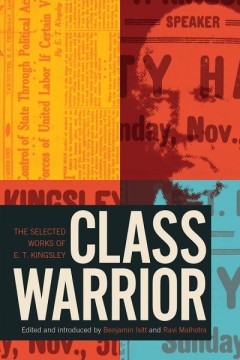
Class Warrior The Selected Works of E. T. Kingsley
In October 1890, Eugene T. Kingsley’s life changed irrevocably while working as a brakeman on the Northern Pacific Railway when he was injured in a fall between two rail cars. While recuperating in hospital after the amputation of both legs, he began reading the works of Karl Marx. Joining a popular socialist movement, his activism eventually brought him to Vancouver, B.C. where he founded th…
- Edition
- -
- ISBN/ISSN
- -
- Collation
- -
- Series Title
- -
- Call Number
- 6 x 9, 400 pages
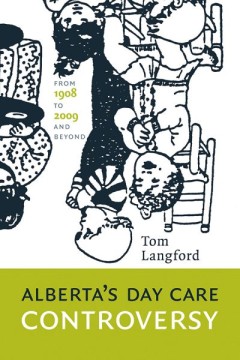
Alberta’s Day Care Controversy From 1908 to 2009 and Beyond
Day care in Alberta has had a remarkably durable history as a controversial issue. Since the late 1950s, disputes over day care programs, policies, and funding have been a recurring feature of political life in the province. Alberta’s Day Care Controversy traces the development of day care policies and programs in Alberta, with particular emphasis on policy decisions and program initiatives t…
- Edition
- -
- ISBN/ISSN
- 9781926836027.01
- Collation
- -
- Series Title
- -
- Call Number
- -
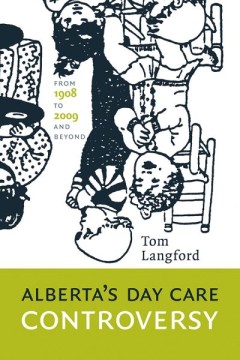
Alberta’s Day Care Controversy From 1908 to 2009 and Beyond
Day care in Alberta has had a remarkably durable history as a controversial issue. Since the late 1950s, disputes over day care programs, policies, and funding have been a recurring feature of political life in the province. Alberta’s Day Care Controversy traces the development of day care policies and programs in Alberta, with particular emphasis on policy decisions and program initiatives t…
- Edition
- -
- ISBN/ISSN
- 978-1-926836-02-7
- Collation
- -
- Series Title
- -
- Call Number
- 425 pages
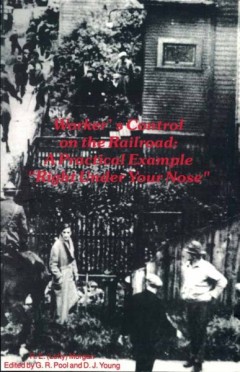
Workers’ Control on the Railroad A Practical Example “Right Under Your N…
The late “Lefty” Morgan, a British Columbia railway engineer, outlines his philosophy of workers’ control in this fascinating volume. The volume has a scholarly introduction by University of New Brunswick anthropologist, Gail Pool, and University of Toronto PhD student in anthropology, Donna Young. They situate Lefty politically and historically and locate Lefty’s work in current debate…
- Edition
- -
- ISBN/ISSN
- 0-9695835-4-0
- Collation
- -
- Series Title
- CCLH Publications
- Call Number
- -
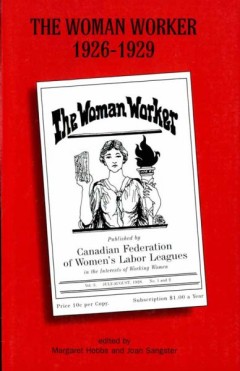
The Woman Worker 1926-1929
This volume presents the inaugural issue and articles from The Woman Worker, the official newspaper of the Canadian Federation of Women’s Labor Leagues, during its 1926 to 1929 run. Edited by prominent Communist Party of Canada leader Florence Custance, The Woman Worker’s objective was to “champion the Protection of Womanhood, and the cause of the Workers generally.” In this collection,…
- Edition
- -
- ISBN/ISSN
- 1-894000-01-3
- Collation
- -
- Series Title
- CCLH Publications
- Call Number
- -
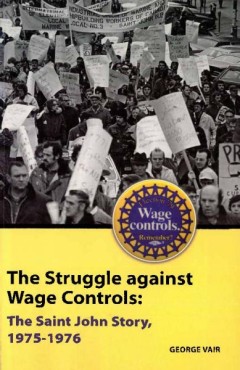
The Struggle against Wage Controls The Saint John Story, 1975-1976
In October 1976 one million Canadian workers walked off the job to protest the wage controls imposed by Prime Minister Pierre Elliott Trudeau. In a memorable personal account of this historic general strike, Saint John labour activist George Vair recalls how workers in one New Brunswick city mobilized to defend themselves and their unions and defeat the unpopular program.
- Edition
- -
- ISBN/ISSN
- 1-894000-07-2
- Collation
- -
- Series Title
- CCLH Publications
- Call Number
- -
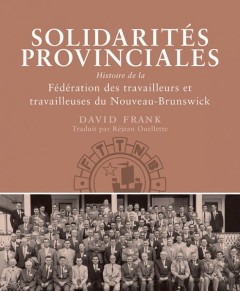
Solidarités provinciales Histoire de la Fédération des travailleurs et tr…
La Fédération des travailleurs et travailleuses du Nouveau-Brunswick, fondée en 1913, est la deuxième plus ancienne fédération provinciale du travail au Canada. Son histoire remonte aux premières campagnes en faveur de l’indemnisation des accidents du travail et de la reconnaissance syndicale, et elle se poursuit dans les plus récentes luttes visant à défendre les normes sociales et…
- Edition
- -
- ISBN/ISSN
- 978-1-927356-29-6
- Collation
- -
- Series Title
- Working Canadians: Books from the CCLH
- Call Number
- 336 pages
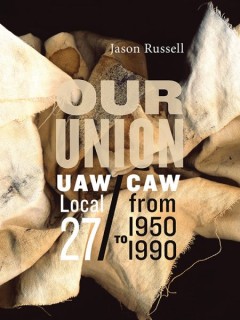
Our Union UAW/CAW Local 27 from 1950 to 199
In Our Union, Jason Russell argues that the union local, as an institution of working-class organization, was a key agent for the Canadian working class as it sought to create a new place for itself in the decades following World War II. Using UAW/CAW Local 27, a broad-based union in London, Ontario, as a case study, he offers a ground-level look at union membership, including some of the socia…
- Edition
- -
- ISBN/ISSN
- 978-1-926836-43-0
- Collation
- -
- Series Title
- Fabriks: Studies in the Working Class
- Call Number
- 336 pages
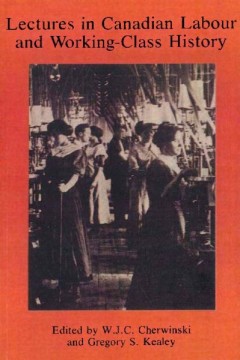
Lectures in Canadian Labour and Working-Class History
In 1983 and 1984 the Canadian Studies Program of the Secretary of State funded four lecture series at Canadian universities on the history of the Canadian working class. This volume presents many of the lectures in a published version. Ranging from east to west and covering two centuries of Canadian labour history, the volume includes a selection of essays by some of Canada’s leading social h…
- Edition
- -
- ISBN/ISSN
- 0-9692060-0-3
- Collation
- -
- Series Title
- CCLH Publications
- Call Number
- -
 Computer Science, Information & General Works
Computer Science, Information & General Works  Philosophy & Psychology
Philosophy & Psychology  Religion
Religion  Social Sciences
Social Sciences  Language
Language  Pure Science
Pure Science  Applied Sciences
Applied Sciences  Art & Recreation
Art & Recreation  Literature
Literature  History & Geography
History & Geography